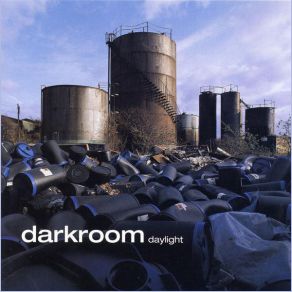Daylight
Download links and information about Daylight by Darkroom. This album was released in 1998 and it belongs to Electronica, Alternative genres. It contains 8 tracks with total duration of 01:02:00 minutes.

|
|
|---|---|
| Artist: | Darkroom |
| Release date: | 1998 |
| Genre: | Electronica, Alternative |
| Tracks: | 8 |
| Duration: | 01:02:00 |
| Buy it NOW at: | |
| Buy on iTunes $9.99 | |
Tracks
[Edit]| No. | Title | Length |
|---|---|---|
| 1. | Crashed | 6:43 |
| 2. | Sprawl | 7:40 |
| 3. | No History | 9:13 |
| 4. | Carpetworld | 5:08 |
| 5. | Datlight | 6:17 |
| 6. | Died Inside | 10:57 |
| 7. | Vladimir | 6:01 |
| 8. | Estragon | 10:01 |
Details
[Edit]Though the Carpetworld EP introduced a much more vigorous dance element to Darkroom's palette, the full length Daylight album comes across as a blend of that with the generally more understated approach of Seethrough. "Sprawl," early in the record, sets the tone as much as anything, with skittering drum'n'bass loops and cut-ups shot through with buried chanting, slower beats, and heavily flanged guitar and other instruments. As has often been the case in earlier releases, Tim Bowness essentially steps aside from singing to let Bearpark and Os create a fair amount of the music, with the former's guitar and the latter's ear for production and various dance music inspirations often resulting in notable efforts. "Carpetworld" and "Daylight" both reappear from Carpetworld itself. The latter is a sweetly narcotic track with a crackling vinyl rhythm, with Bowness' wordless vocals echoing amid guitars and keyboards, but otherwise, all the tracks are new compositions. "No History" is a good example of the less-is-more approach Bowness employs here, his calling, seemingly desperate vocals mixed low, sounding like distant signals behind the rolling breakbeat and Bearpark's synth/guitar melodies. As the track continues, Bearpark steps more to the fore with some excellent soloing, rough yet weirdly pretty, while Bowness' singing re-echoes in the mix every so often. Perhaps even more minimal is "Died Inside," an 11-minute long cut where echoes of Bowness' vocals provide the rhythm while all three performers add just-on-the-edge-of-the-mix elements of their own throughout. It's an entrancing effort, with the right combination of subtle drive and aural mystery. Though the two concluding tracks have linked names — "Vladimir" and "Estragon," the lead characters of Samuel Beckett's famed piece of abstract theater, Waiting for Godot — the latter contains a subtle, steady beat deep in the mix while the former explores a more ambient yet edgy experience.